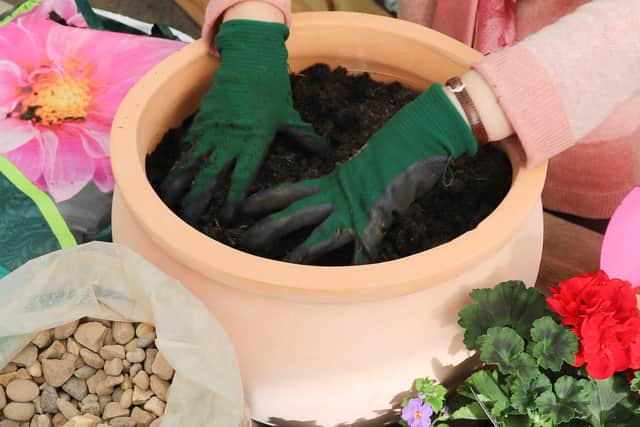Peat farming is not sustainable and most gardeners don’t want to see it return - Yorkshire Post Letters
Readers of The Yorkshire Post will be fully aware of the nature of farming as a critical activity in our nation’s economy and essential to the maintenance of our rural environment, so eyebrows may have been raised at the suggestion by Mr Peter Auty (YP letters, March 2) that the industrial extraction of peat for horticulture is also a type of farming.
What farmer spends their time digging up their soil, shipping it away, and then moving on to another field to repeat the process?
Advertisement
Hide AdAdvertisement
Hide AdBut this is what Mr Auty says the peat extractors do and he claims this makes the extraction “sustainable”. He must have been reading the propaganda of the overseas peat industry.


Peat in a natural undisturbed landscape accumulates at around one millimetre of depth per year. Industrial extraction strips drained peat away by the metre.
Re-wetting and reseeding a stripped peatland may sound like returning the land to nature, but it would take a thousand years to recover. So for an industry less than 75 years old it looks more like rapacious plunder than a sustainable business operation.
Across the globe, most peatlands are thankfully in upland areas inaccessible or unsuitable for mechanised extraction. Even so, they are not immune from degradation as a result of existing climate changes, due to the cumulative effects of centuries of carbon release from fossil sources, including peat deposits.
Advertisement
Hide AdAdvertisement
Hide AdThe 14 per cent of global peatlands that Mr Auty states is “farmed” are in lowland areas which have been drained for agriculture - for example palm oil plantations - so one could imagine superficially that it is being “farmed”, but not in a way that sustains the ecological benefit of a natural peatland.
Whether drained for extraction or cultivation, the natural ecology of the peat, its ability to sequester carbon, is destroyed. So not only is carbon released from the drained peat, but further atmospheric carbon is actively prevented from being removed from circulation - a double disadvantage.
Seeking to continue using peat in compost, on the basis that it is only a small part of a much bigger problem, is like failing to police petty crime because there are murderers about. I doubt that politicians in an election year would espouse that and thankfully most gardeners don’t either.
Comment Guidelines
National World encourages reader discussion on our stories. User feedback, insights and back-and-forth exchanges add a rich layer of context to reporting. Please review our Community Guidelines before commenting.
